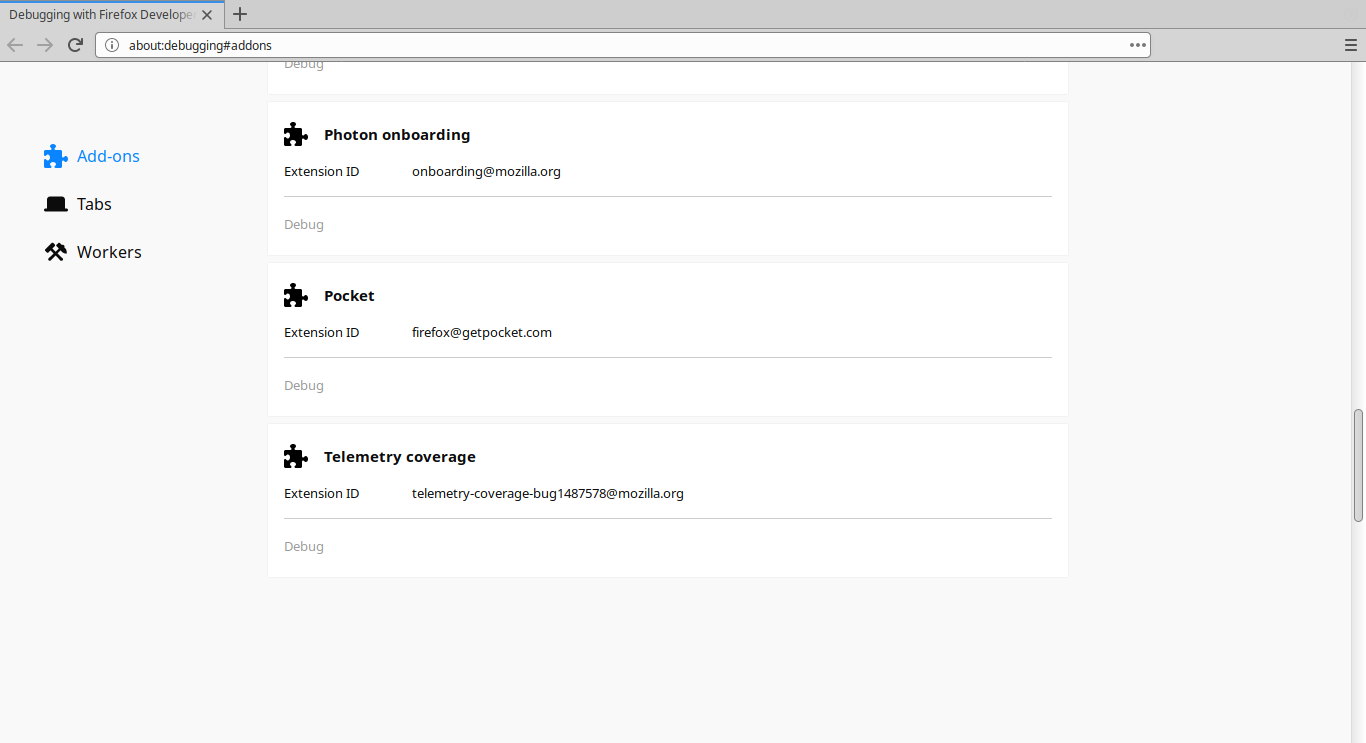Without guessing who is most responsible, it seems like a logical conclusion of internet tracking capabilities is for it to be taken to the extreme before realising something profound like total surveillance is no surveillance or whatever the enlightenment is.
https://invidi.link for creating invidious links
- 15 Posts
- 191 Comments
Washington state governor expected to sign new bill ending prohibition on municipal broadband https://www.geekwire.com/2021/washington-state-governor-expected-sign-new-bill-ending-prohibition-municipal-broadband/

 2·5 years ago
2·5 years agoThis “Why scientists don’t actually know if social media is bad for you” just came across my RSS [1]. I don’t agree with it, but its helpful to know what you are up against. It came through the Oxford International feed (Mozilla’s Mitchell Baker is an advisor to them). It was written by Oxford International researcher Prof Andrew Przybylski for BBC Science Focus.
But that doesn’t stop people claiming that cyberbullying causes suicides, even though there’s no evidence to prove it. You look at reasons why young people take their lives and it’s test scores or exams, it’s someone close to them taking their own life or it’s drug- and alcohol-related. Those are the three main attributable causes. There’s no evidence that social media is part of any of them.
Now, I can either adopt false confidence and tell you social media might be a problem (and possibly drop the word ‘might’ for greater impact – and there’s an entire cottage industry that tries to do that) or I can be honest with you and say I don’t know because scientists like us can’t see over the walls of the social media companies.
…
Whether you’re a grown up or a kid, ask yourself why you’re using social media. Is it because you want to, or because you feel you have to? It doesn’t necessarily matter how much time you spend ‘doomscrolling’ on Twitter or dancing on TikTok, but if you’re doing it because you feel you have to and it’s making you unhappy, you may want to try and stop.
- Why scientists don’t actually know if social media is bad for you: https://www.sciencefocus.com/future-technology/why-scientists-dont-actually-know-if-social-media-is-bad-for-you/
The fingerprinting implications are not good no matter whether a site opts out or not. Theoretical protection against fingerprinting relies on a fairly ridiculous notion of Privacy Sandbox which seems easily skirted. Things like Trade Desk Unified ID combined with cohort ID actually makes FLoC privacy negative as it gives another data point to add to your already known identity.
The point is that the only way for a site to opt out of participating is by using this W3C ordained way. It basically useless for end users but necessary for sites who don’t want to participate in the program.
Google’s point is that all this and more is already going on with 3rd party system so why don’t we make this other crappy system which consolidates control further in their hands.
It’s not misinformation however to provide to site operators information about how to opt-out of participation.
I had a chance to read over the full article and its links. Here’s my conclusion:
- As stated in your piece, during the “Origin Trial” Google will use those who have enabled ads on their site.
However, this is not true imo:
If your website does not include JS that calls document.interestCohort(), it will not leverage Google’s FLoC. Explicitly opting out will not change this.
This will stop you from participating on the client side of FLoC, not the server-side. Server side categorization for sites with ads is where this Permissions action is aimed at. What this is saying is that if an ad tries to get a cohort id from an opted-out site, it will receive a meaningless default value. This knowledge is for the benefit of advertisers, not webmasters.
- The article basically says, it doesn’t matter anyway because the impact judged by the author to be insignificant:
This may or may not reduce the entropy gained by a FLoC ID, depending on how well or poorly your site serves as an identifier. Given this marginal improvement, I don’t think it’s right to place a burden or blame on webmasters when the burden and blame should rightfully be directed at those responsible for rolling this antifeature out in Chromium. We shouldn’t expect webmasters to add a tag or header every time Google advances the war against its own users
However, being categorized as a frequent visitor of Free and Open Sites (think of being put in the Stallman cohort) may well be significant for advertisers, authorities, creditors and so on.
- This has happened before (DNT)
While DNT isn’t a great success, the number of companies who could face legal repercussions for ignoring this round of protections is quite small and risk could be quite large.
- Breathe
Agreed. This is no cause for mass hysteria, but lets get the information out there so webmasters can make informed choices (setting a Permissions Policy is the best option for those who do not want their content to included, especially as Google moves from Origin Trial into full on deployment and other browser vendors start to adopt the scheme).

 7·5 years ago
7·5 years agoIt seems like there needs to be people who know how to build an instance community. It would be great to have a history, philosophy, psychology instance that someone builds into a thriving community of experts. Same for science, music, photography and a dozen things others are interested in. They don’t need to be niche or dogmatic, but there should be a reason to join.
Many people seem to think the constrained by design, under active development flagship is going to spawn reddit level communities, but the point of the whole thing is to go build or find your own. So far several of the instances have been regional or politically divisive which seems to serve a need, but online-extroverted leaders with a desire to put themselves out there seem few and far between (those can build are probably building for-profit exit strategy communities).
Anyway, if there was something missing, I would say community builders.
Thanks I am out and about now, will read it.
Are you sure this issue is not about webmaster excluding their content from floc categorisation vs tracking their users via the cohort script? I will look at it later but it seems like two different though related issues.
Good to see a lot of thought went into to this and most of those criteria look right.
A couple comments:
Is the site itself well-known and reputable or obscure and suspicious?
I don’t think well-known and reputable sites should be exempt if they fit the other patterns.
For example, if a fedora enthusiast creates an account that does nothing but post to fedoramagazine.org they should have the same consequence, especially if they don’t participate in the community otherwise.
nor is it against the rules for an organization to have an official account on Lemmy
same as above. organisations should be treated by the same rules as any other user
For me, a grey area would be if someone like logrocket got someone to join the community as an active user and posted logrocket articles as well as contributing to the community with posts to other sites, comments on other posts etc. Not ideal, but hard to say they are breaking the rules.
is blatantly “fake news”
Not a fan of this one because some people’s idea of fake news varies widely and you are stepping on slippery slopes. I understand the intent, and agree but maybe there is a less editorial way to conceive it.
Good work.

 3·5 years ago
3·5 years agosimilar story for me and several fediverse instances (one peertube and another friendica). it’s somewhat disconcerting that well-funded/well-staffed instances attract more users (and tend towards centralisation).
If an undercover Jack Dorsey blueskies proxy comes in with a couple million dollars, some experienced technical and marketing staff and starts blazing high quality video and content streams, and stealth product placement ads, it’s going to be like Jupiter on the edge of the solar system grabbing all new entrants. If they adopt a closed by default federation model, they could even create something akin to blue checkmark instances.
we should do what we can to bootstrap real federation advocacies.
Have you checked your bios settings for boot options? On mine I have 3 different options: fast boot, thorough and auto along with a couple for delays.

 1·5 years ago
1·5 years agoan interesting discussion on PaleMoon blocking AdNauseam wherever one falls on the issue. I don’t use palemoon or adnauseum but I’m not sure everybody that runs ads needs to deal with programmatic harm from visitors. if blocking ads isn’t enough, one might be hardcore enough to boycott the site altogether and add it to your hosts file.

 3·5 years ago
3·5 years agoPossibly realted: Your Smart TV is probably ignoring your PiHole https://labzilla.io/blog/force-dns-pihole
Fortunately, with a few simple firewall rules, you can intercept these hardcoded DNS queries and redirect them to your PiHole. These instructions are for pfSense, however you should be able to adapt them for Sophos XG, Ubiquiti EdgeRouter, etc

 4·5 years ago
4·5 years agowill give it a try
there is also tealdeer: https://lib.rs/crates/tealdeer
and cheat.sh e.g. curl cheat.sh/tar

 2·5 years ago
2·5 years agoIf they are really running all these services, €60 a month might be pretty easy to hit.
I can’t find this public monthly financial report … does anyone have it? It would be easier to understand where costs are piling up
The usage of every euro will be made public information via monthly financial reports. As a member you get to influence how we spend these funds.

 6·5 years ago
6·5 years agoTemporary Containers:
- https://github.com/stoically/temporary-containers
- https://addons.mozilla.org/firefox/addon/temporary-containers/
Remove Redirect (or the original Skip Redirect):
- https://github.com/hyperfekt/webextension-remove-redirect
- https://addons.mozilla.org/en-US/firefox/addon/remove-redirect/
I also use Privacy Possum (not Privacy Badger) but its not very popular with some of lemmy crowd. I see it blocking header trackers like etags (even with matrix on).

 4·5 years ago
4·5 years agoJust so you know, I (not one of your harassers) am downvoting this because I think the topic is too narrow for this community.

 1·5 years ago
1·5 years agoThe point is that they are still going to do it anyway through things like Unified ID, Turtledove (outside scope of FLoC) so while we can object to the latest thing in the media, how would we propose they do it? If nobody cares then they have a bag of tricks full of worse measures waiting in the wings.

 13·5 years ago
13·5 years agoJust a note that this is for the android project. The original linux project is ongoing (https://github.com/Eloston/ungoogled-chromium)









yeah that’s pretty shite. this was originally posted on slashdot, but I’m going to take it down in light of this. thanks.